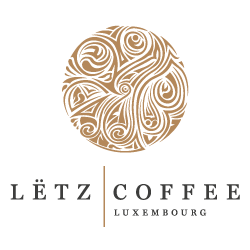No Products in the Cart
Indonesia is now the world's fourth-largest coffee producer, producing over 10 million 60kg bags. Located in the far west of the Indonesian archipelago, Sumatra is a wild island ideal for coffee cultivation, with two harvests per year. Its hot and humid climate plays an important role in the distinctive aromas of the coffees produced.
Sumatran farms are small, ranging in size from 0.5 to 2.5 hectares. Coffee is the main crop, but between harvest times, farmers also grow vegetables, potatoes, and fruit, helping to meet their families' food needs. In addition to growing coffee, many smallholders also work as laborers on nearby tea plantations: indeed, tea represents another important part of the region's culture. Once the cherry harvest is complete, coffee growers go out to pick the tea leaves. Increasingly, Sumatran farmers are organizing themselves into cooperatives, which allows them to share resources, receive training, and negotiate better prices.
The Koerintji Barokah Bersama cooperative has no fewer than 320 members living and farming at the foot of Indonesia's highest volcano, Mount Kerinci, in the central part of the island of Sumatra. The area has remained lush and green thanks to the fertile volcanic soil left behind by the volcano's historic eruptions. Founded in 2017, the cooperative has a roasting facility and a cupping lab adjacent to the coffee processing facilities. It is managed by Tryiono, who guides members in processing and roasting their own coffee if they wish. Tryiono and his team are committed to maintaining Indonesian coffee processing traditions, including this unique wet-hulled process called Giling Basah: after being pulped, the cherries, still coated in their mucilage, are left to dry on raised beds for a short period. When the coffee still has a high moisture content, it is taken to the processing center to be washed and/or dried. This process gives the beans a typical blue-green appearance and is believed to reduce acidity while increasing body, resulting in the typical Indonesian cup profile. During the harvest season, the coffee is handpicked and delivered to one of the cooperative's nine collection centers (called UPH stations), where the cherries are purchased by the cooperative before being washed and transported to the main processing center. Cooperators receive a fixed price per kilo of cherries. At the end of the year, the cooperative's profit is either invested in infrastructure to improve the quality of the coffees or shared among the farmers. Farmers also receive technical support and tree seedlings to create shade areas. To join the cooperative, the farmer pays a fixed, one-time fee. An agronomist provides technical assistance to ensure that standard operating procedures are followed during processing at the various stations. Each UPH is located in a different area and receives cherries from different groups of farmers.
To be informed of our latest news, leave us your email address. You will also receive a 10% discount on your next coffee order.

